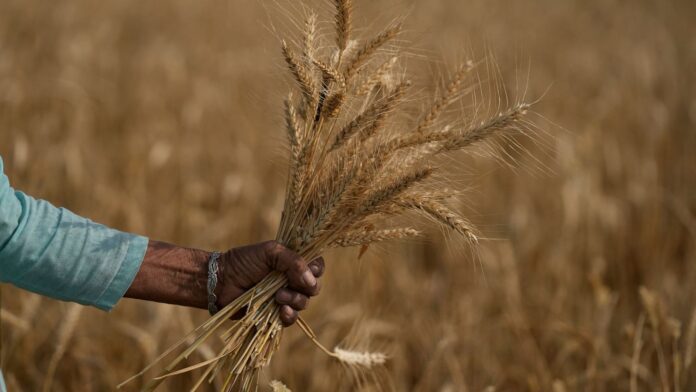Even though it is the world’s second-largest producer of wheat, India exports only a small fraction of its harvest. An unusually early, record-shattering heat wave in India has reduced wheat yields, raising questions about how the country will balance its domestic needs with ambitions to increase exports and make up for shortfalls due to Russia’s war in Ukraine.
An unusually early, record-shattering heat wave in India has reduced wheat yields, raising questions about how the country will balance its domestic needs with ambitions to increase exports and make up for shortfalls due to Russia’s war in Ukraine.
Gigantic landfills in New Delhi have caught fire in recent weeks. Schools in eastern Indian state Odisha have been shut for a week and in neighbouring West Bengal, schools are stocking up on oral rehydration salts for kids.
On Tuesday, Rajgarh, a city of over 1.5 million people in central India, was the country’s hottest, with daytime temperatures peaking at 46.5 degrees Celsius. Temperatures breached the 45 Cmark in nine other cities.
But it was the heat in March — the hottest in India since records first started being kept in 1901 — that stunted crops. Wheat is very sensitive to heat, especially during the final stage when its kernels mature and ripen. Indian farmers time their planting so that this stage coincides with India’s usually cooler spring.
Climate change has made India’s heat wave hotter, said Friederike Otto, a climate scientist at the Imperial College of London. “But now it is a much more common event — we can expect such high temperatures about once in every four years,” she said.
India’s vulnerability to extreme heat increased 15% from 1990 to 2019, according to a 2021 report by the medical journal The Lancet. It is among the top five countries where vulnerable people, like the old and the poor, have the highest exposure to heat.
Farm workers like Baldev Singh are among the most vulnerable. Singh, a farmer in Sangrur in northern India’s Punjab state, watched his crop shrivel before his eyes as an usually cool spring quickly shifted to unrelenting heat. He lost about a fifth of his yield. Others lost more.
Climate change has made India’s heat wave hotter, said Friederike Otto, a climate scientist at the Imperial College of London. “But now it is a much more common event — we can expect such high temperatures about once in every four years,” she said.
Punjab is India’s “grain bowl” and the government has encouraged cultivation of wheat and rice here since the 1960s. It is typically the biggest contributor to India’s national reserves and the government had hoped to buy about a third of this year’s stock from the region. The story is the same in other major wheat-producing states like Uttar Pradesh and Madhya Pradesh.
Even though it is the world’s second-largest producer of wheat, India exports only a small fraction of its harvest. It had been looking to capitalize on the global disruption to wheat supplies from Russia’s war in Ukraine and find new markets for its wheat in Europe, Africa, and Asia.
That looks uncertain given the tricky balance the government must maintain between demand and supply. It needs about 25 million tons (27.5 million U.S. tons) of wheat for the vast food welfare programme that usually feeds more than 80 million people.
******************************************************************
Readers
These are extraordinary times. All of us have to rely on high-impact, trustworthy journalism. And this is especially true of the Indian Diaspora. Members of the Indian community overseas cannot be fed with inaccurate news.
Pravasi Samwad is a venture that has no shareholders. It is the result of an impassioned initiative of a handful of Indian journalists spread around the world. We have taken the small step forward with the pledge to provide news with accuracy, free from political and commercial influence. Our aim is to keep you, our readers, informed about developments at ‘home’ and across the world that affect you.
Please help us to keep our journalism independent and free.
In these difficult times, to run a news website requires finances. While every contribution, big or small, will makes a difference, we request our readers to put us in touch with advertisers worldwide. It will be a great help.
For more information: pravasisamwad00@gmail.com



